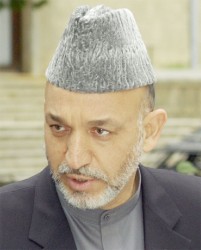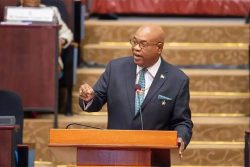KABUL, (Reuters) – President Hamid Karzai’s stubborn refusal to sign a pact that would keep thousands of U.S. troops in Afghanistan after 2014 is a high-risk gamble that Washington will give in to his demands, one that has left him isolated as the clock runs down on his presidency.

Diplomats said he may have overplayed his hand, raising the risk of a complete U.S. withdrawal from a country where Western troops have fought Taliban militants for the past 12 years. It also risks a backlash at home by critics who believe Karzai is playing a dangerous game with Afghanistan’s future security.
If the bilateral pact is not signed, Western aid running to billions of dollars will be in serious jeopardy, and confidence in the fragile economy could collapse amid fears the country will slip back into ethnic fighting or civil war.
“I don’t know if he fully realises the risks,” said U.S. Marine Corps General Joseph Dunford, the U.S.-led coalition’s top commander.
Dunford told The Wall Street Journal on Thursday that Karzai’s failure to quickly sign the agreement could not only weaken the Afghan economy, but embolden powerful neighbours and lead to the collapse of the country’s security forces.
“The uncertainty and the lack of confidence about the post-2014 environment has had an adverse effect on the people in some very real ways, whether it be the flight of young people who try to leave the country, whether it be plunging real-estate prices, the rate of the Afghani” currency, Dunford said.
Afghanistan could not survive without international commitments made at the Chicago NATO summit last year, he said.
“Right now, I don’t see Afghanistan being able to sustain the Afghan security forces without the Chicago commitments,” Dunford said, adding he believed Karzai would eventually sign the pact.
There was much dismay in Kabul this week after Karzai over-rode the near-unanimous decision of an assembly of nearly 3,000 Afghan tribal elders to back the agreement and introduced new conditions.
“What was the point of calling the Jirga (assembly) if Karzai wants to continue haggling with the United States?” said Haji Mursaleen, a prominent elder who travelled from the eastern province of Kunar to attend the assembly.








